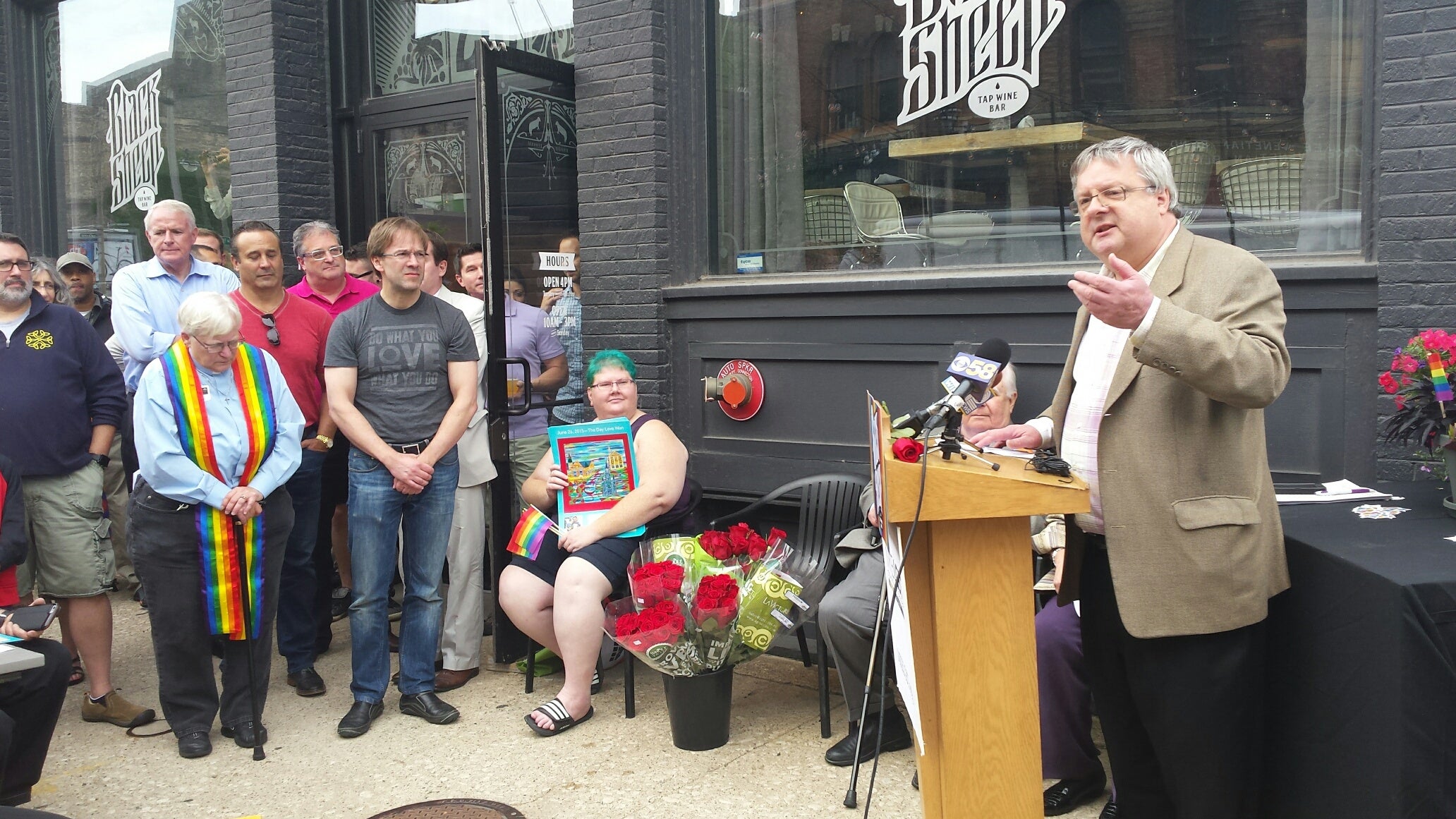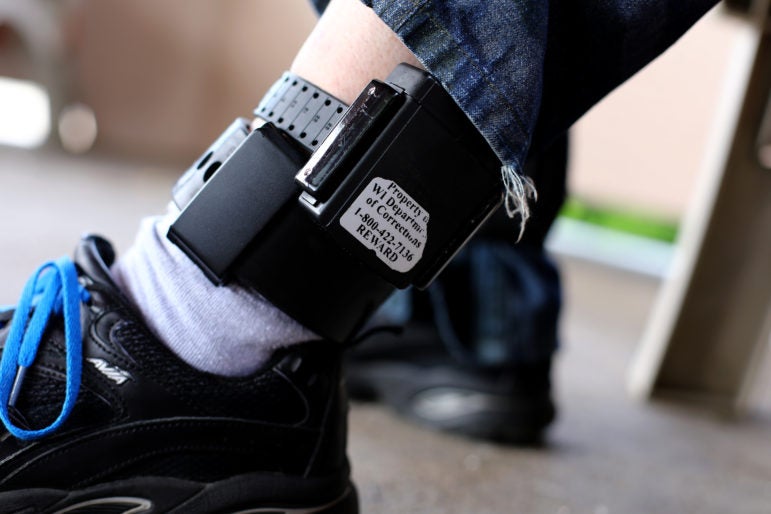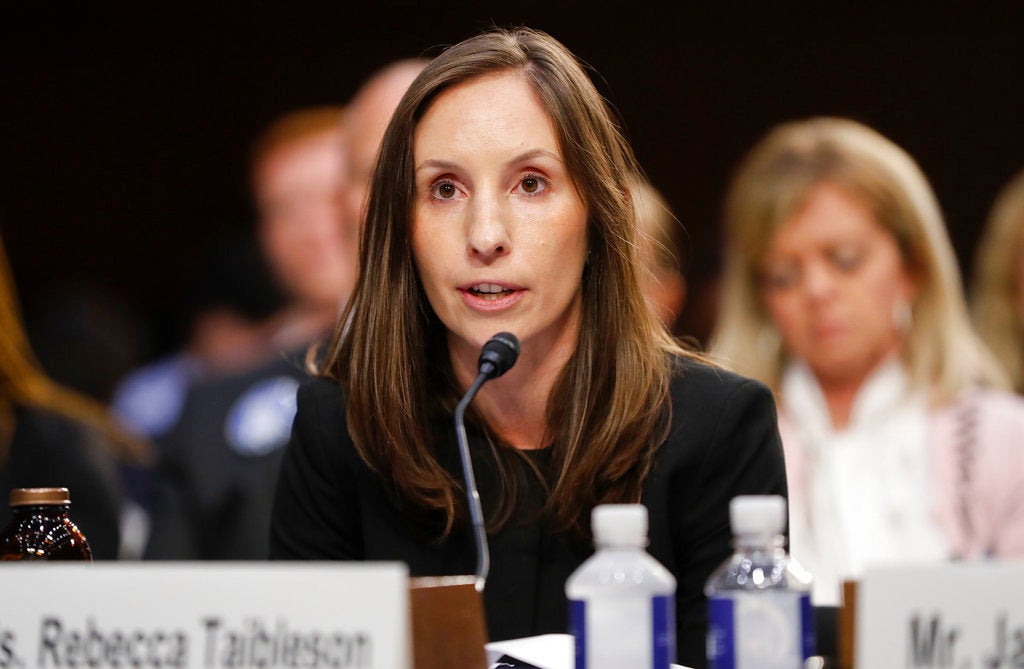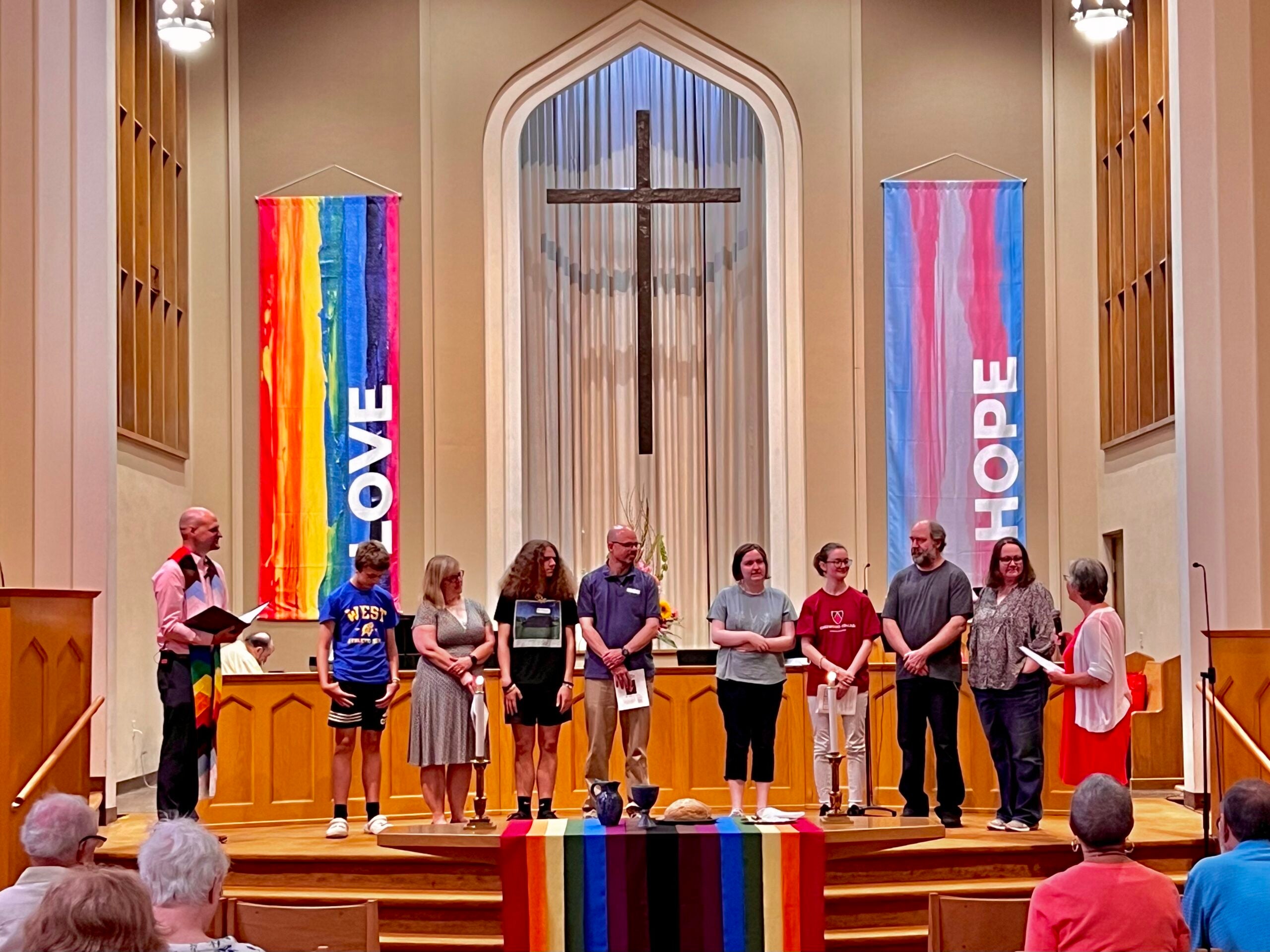The U.S. Supreme Court ruling Friday legalizing same-sex marriage in all 50 states is getting mixed reactions in Wisconsin, with opponents and supporters stressing different implications of the decision.
American Civil Liberties Union attorney Larry Dupuis, who argued the case striking down Wisconsin’s constitutional ban on gay marriages, said the high court’s ruling lifts a cloud that had been hanging over gay couples in the state.
“Couples who have married in Wisconsin can now travel to other states and feel secure in their ability to — heaven forbid need to be hospitalized in another state, they’ll be able to talk to doctors for their spouses and so forth, so it’s a huge victory,” Dupuis said.
News with a little more humanity
WPR’s “Wisconsin Today” newsletter keeps you connected to the state you love without feeling overwhelmed. No paywall. No agenda. No corporate filter.
But opponents like Julaine Appling of Wisconsin Family Action, who led the campaign to pass the constitutional ban, said the court has created a new right that threatens religious freedom. Appling said she fears the ruling will encourage discrimination against people who oppose gay marriage on religious grounds.
She said her group will continue to encourage church leaders to speak out and educate their congregations about why God designed marriage as a heterosexual institution.
Dupuis said there are ample protections in the Constitution’s First Amendment to prevent the government from forcing churches to recognize same-sex marriage.
U.S. Supreme Court Justice Anthony Kennedy made that clear in the ruling today. In the majority opinion, he wrote, “Those who adhere to religious doctrines may continue to advocate with utmost sincere conviction that, by divine precepts, same-sex marriage should not be condoned.” Kennedy went on to write that, “the Constitution does not permit the state to bar same-sex couples from marriage.”
Wisconsin Public Radio, © Copyright 2025, Board of Regents of the University of Wisconsin System and Wisconsin Educational Communications Board.






